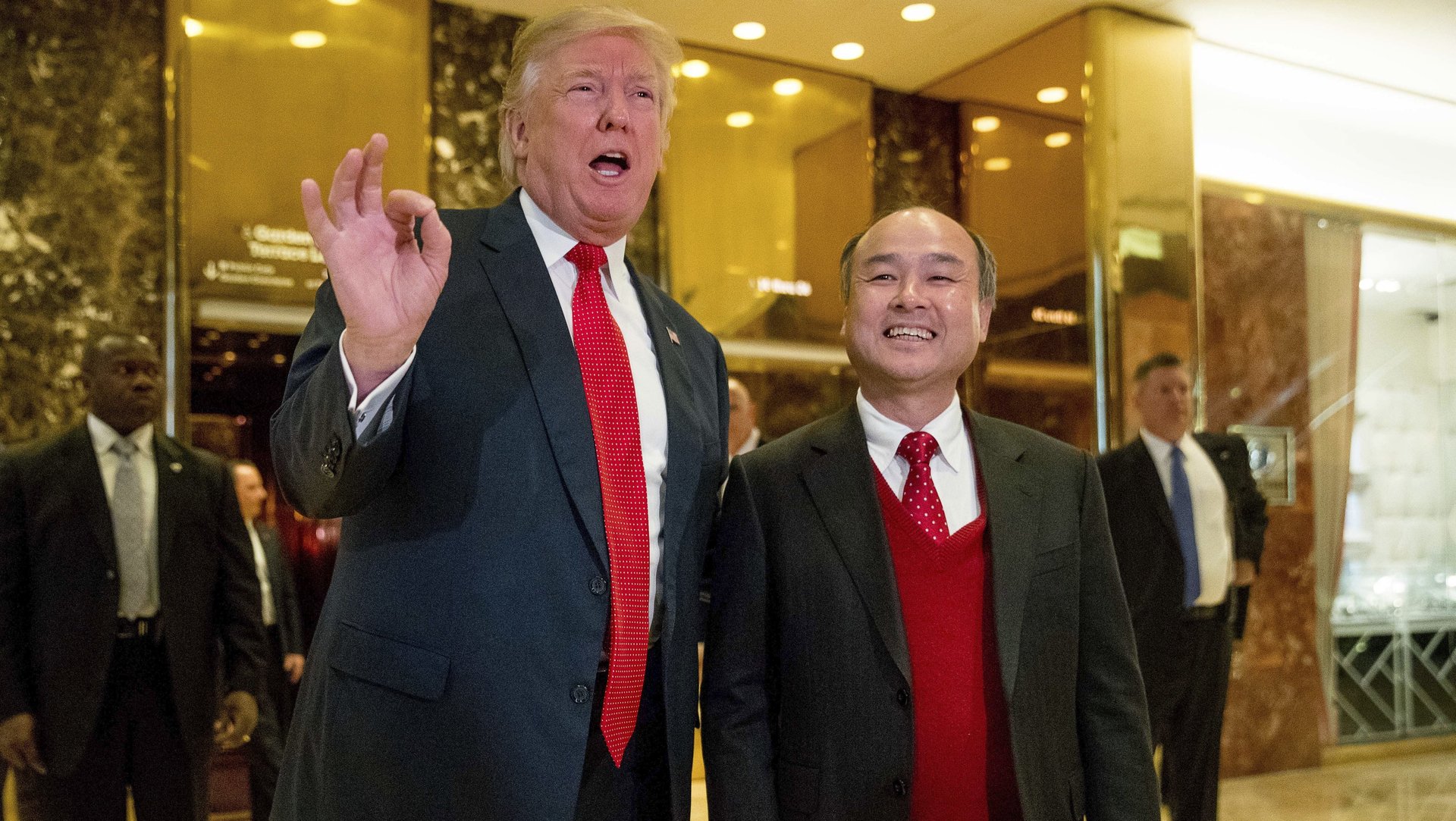A CEO’s playbook for surviving in the Age of Trump
Business leaders summoned by US president-elect Donald Trump to a technology roundtable this week will enter a meeting fraught with peril. Not only did many of them publicly support Hillary Clinton, which might ensure a frosty reception, but Trump is dramatically rewriting the rules for how CEOs engage with the White House.


Business leaders summoned by US president-elect Donald Trump to a technology roundtable this week will enter a meeting fraught with peril. Not only did many of them publicly support Hillary Clinton, which might ensure a frosty reception, but Trump is dramatically rewriting the rules for how CEOs engage with the White House.
Corporate chieftains have come to expect a civil give-and-take with the administration, where policies and practices might be criticized, but companies and their leaders wouldn’t be called out or humiliated. But if we’ve learned anything in the first month of America under Trump, he has little regard for past practices or protocols, and is more than happy to upend the conventions of Washington to score political points.
For business leaders who crave predictability above all else, navigating the Trump era will pose unprecedented challenges. Here are some pointers for making it out unscathed:
Kiss the ring
Trump loves praise, and seems driven by a need to assert his authority. Powerful CEOs, normally loath to truckle before anyone, are advised to swallow their pride and give the Donald his due. Look to the example of Softbank’s Masayoshi Son, who visited Trump Tower last week to offer his congratulations. “This is great. The U.S. will become great again,” he reportedly told Trump. Not only did Son deftly incorporate Trump’s own slogan into his tribute, but he allowed Trump to take credit for Son’s pledge to invest $50 billion in the US.
Never mind that Softbank had pledged to invest $100 million in global technology a month prior to the election, which meant pouring money into US companies was all but assured. By letting Trump crow, Son lost nothing and gained an ally.
Keep your mouth shut
There’s a theory in management circles that outspoken CEOs benefit their companies by sending signals to consumers about their values, which rallies support for their products. That theory will be tested severely under Trump, whose early approach to outspoken CEOs is to smack them down. Hours after the Chicago Tribune posted an article noting Boeing CEO Dennis Muilenberg’s apprehension about Trump’s ant-trade rhetoric, the president-elect fired back. In a tweet, he blasted Boeing’s contract to supply a new fleet of Air Force One planes as too costly and threatened to cancel the project. (Trump denies that he read the Tribune article prior to tweeting).
Trump lashes out on Twitter indiscriminately—according to the New York Times, one in nine of his tweets are attacks. Everyone from teenagers to union bosses have felt his lash, triggering online abuse and death threats from Trump supporters. CEOs have PR departments and security teams to protect them, but do they really need that aggravation?
Be flexible
Trump scored big political points by parachuting into Indiana and appearing to strong arm Carrier into keeping clue-collar jobs in the US. He claims he saved 1,100 of 2,100 jobs from moving to Mexico (the union says its more like 730). Carrier, in a delicate position, did a quick political calculation and cut the best deal it could. It finagled $7 million in tax breaks from the state of Indiana, while parent company United Technology got a receptive ear to its complaints about regulations. It also kept a major customer—the federal government—happy, and makes no guarantees about preserving the Indiana jobs indefinitely. As United Technology CEO Greg Hayes told CNBC’s Jim Cramer:
Well, look, you have to recognize the reality of the day, right? I always tell you at UTC we reserve the right to get smarter. And when the facts change we have to be able to adapt. And I think that’s exactly what I would say we did here. We understood that the facts have changed. Something we didn’t expect.
Hide behind your lobbyists
There’s a reason corporations pay membership dues to organizations like the US Chamber of Commerce and Business Roundtable: They fight the battles for you. Trump is at odds with the business establishment on major policy issues like immigration and free trade, where the stakes are high, and while some CEOs are itching to get in the fight, there’s little to be gained by doing so. Last week, Tom Donohue, the pugnacious head of the chamber, told a gathering of US and Mexican leaders that he will fight Trump over his plan to dismantle NAFTA. Let him do his job.
Wait for the money to roll in
Remember, Trump is a businessman first, and he wants what CEOs want. Big businesses, which thrived under Obama, should soar under Trump. High on his agenda are lowering the business tax and freeing companies from government rules. Many of his nominees come from the corporate world, like fast food executive and potential labor secretary Andy Puzder, or are committed foes of regulation, like incoming EPA head Scott Pruitt. Sure, a few companies may get knocked around as Trump plays populist and throws red meat to the masses—drug makers have reason to be nervous— but by making sure they avoid Trump’s Sauron-like eye, most CEOs will be just fine.